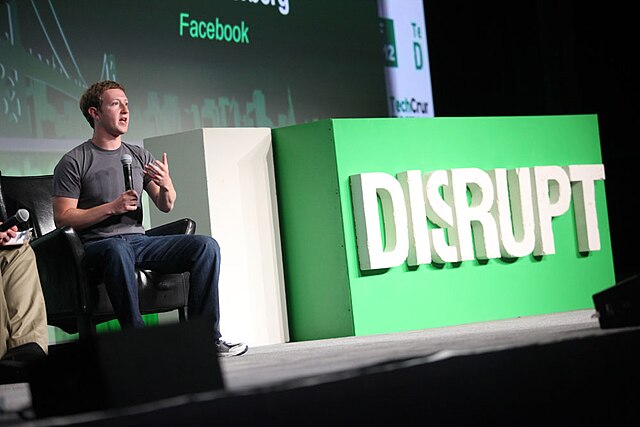I recently listened to Joe Rogan’s podcast with Mark Zuckerberg and it got me thinking about the state of free speech, social media censorship, and how tech billionaires like Elon Musk influence public discourse. Their conversation touched on issues like government intervention in online platforms, the limits of censorship, and the broader political landscape. With everything happening in U.S. politics right now, especially with Musk’s recent statements and actions, I couldn’t help but reflect on how much power these figures hold over the way people think and engage with current events.
The American Dream teaches that the US is a place where anyone can succeed, no matter their background – only hard work matters. This belief shapes young adults before they even consider whether they are Democrats or Republicans. The problem in the US is in its values. The country glorifies success, wealth, and free speech. Naturally, this means people idolize multimillionaires like Elon Musk or Jeff Bezos – ‘who have made it.’ But what happens when these people push a conservative agenda? That’s when critical thinking becomes essential.
For the next four years, it will be difficult to restrict hate speech when the president of a global superpower openly makes such remarks – such as criticizing diversity rules in army pilot recruitment – thereby setting an example of what is deemed acceptable.
The trend of selective censorship is not just about free speech online – it extends into the broader political landscape. For example, the recent comments by Secretary of Defense Pete Hegseth, who stated that women shouldn’t be in certain combat roles. Zuckerberg noted that a comment like that would have been censored on social media before and stated that something said in public should also be allowed on social media.
This is the exact risk of allowing extreme conservatives to hold power. When high-profile figures set an example, others follow. It becomes normalized. It’s natural that Meta will allow offensive speech if those in power are the very same problematic individuals who oppress others and seek control.
If a woman applies for a military position and isn’t qualified, she won’t get the job – just as a man applying for the same position wouldn’t get it if he wasn’t qualified. This should not be about gender, but about skills. Gender, background, race, or sexuality – none of these should be barriers to employment. Only skills should matter.
Zuckerberg claims that free speech has only been censored from one side. But why isn’t the other side facing the same restrictions? Could it be because liberals aren’t the ones trying to strip people of their rights, oppress marginalized groups, or spread hate speech? If Meta is truly committed to free expression, why does it shadow-ban accounts in the U.S. that provide information on abortion pills – especially when this shift conveniently follows Trump’s return to power, whose agenda openly targets reproductive rights?
Zuckerberg also stated: “The corporate world has been culturally neutralized. Some degree of masculine energy is beneficial, yet corporate culture is increasingly trying to move away from it. Environments that embrace aggression have their own merits and can be highly positive. The idea that ‘masculinity is bad, and we need to eliminate it’ is flawed.”
This argument lacks true strength. Masculinity and femininity are not opposing forces; corporate culture doesn’t need to erase masculinity – it needs balance. True strength lies in harmony; just as yin and yang complement each other, men need feminine energy to nurture, show kindness, and lead with empathy, while women benefit from masculine energy to pursue ambition, assert themselves, and thrive in competitive spaces. The goal should never be to eliminate one over the other but to create an environment where both energies coexist and empower success.
The fight over free speech isn’t just about what’s allowed on social media, it is about whose voices get silenced in the real world. And right now, one of the biggest political battles in the U.S. is over abortion rights. This debate isn’t just about policy; it’s about power and control. When immature, disrespectful figures gain power, we must think critically, question their opinions, and refuse to follow the herd. Whose power is truly threatened when a woman has the right to make decisions about her own body? The fight over abortion rights exposes deep hypocrisy – why is a woman’s bodily autonomy up for debate, but male reproductive choices are not? I saw a meme recently that was both funny and relevant: if God’s will is that abortions shouldn’t happen, then Viagra should also be banned – because an erection that doesn’t happen must also be God’s will.
Yet, there’s little to no discussion about holding men legally accountable when they pressure women into abortions. Why is it always the woman who faces judgment, while men’s actions are ignored? These double standards are everywhere, shaping laws that not only force children into families that never wanted them but also ignore the immense mental and emotional toll on women who are forced to carry pregnancies to term. This isn’t just about unwanted children – it’s about the well-being of the woman involved. So who actually benefits from these policies?
If the debate isn’t about human rights, let’s talk economics – banning abortion doesn’t just strip away choice, it creates a social and financial crisis. We would need more foster care systems for children whose parents couldn’t raise them, but more importantly, we would be ignoring the mental health crisis faced by women who are forced into motherhood against their will. Are they prepared to deal with the long-term psychological and societal consequences of these decisions?
There are countless reasons why people seek abortions, and every person has their own personal reason. They should have the right to act on it. If we talk so much about free speech, bodily autonomy should be an obvious right. The decision-makers in power aren’t making laws that violate human rights for themselves – straight cis men. Instead, these policies disproportionately target women, trans people, and other marginalized groups who don’t have the same political protection.
It feels like people like Musk mock the rest of us – ordinary people – by flaunting their power on social media. After a speech at Trump’s inauguration, he performed the “My heart to you” salute from the movie 300, fully aware of how it would be interpreted in today’s political climate. He doesn’t care. In fact, one could argue that he is fully aware of the consequences of performing a fascist salute in today’s political climate. How dangerous is it that someone like him – followed and admired by millions – makes this kind of behavior seem acceptable? Musk’s growing engagement with far-right ideologies has likely influenced people who were previously uninterested in politics or the AfD in Germany. By publicly supporting a far-right party and hosting discussions on his platform, he is actively shifting opinions.
People look up to figures like him the same way they do influencers. They follow their lead without examining the details. Now, billionaire influencers attract more attention than a jello pool stunt ever could. Phil Butland wrote a good article about fascism and how to combat it, and the only real answer is unity. People must rise up together against fascism and show that we do not accept it. We need to communicate openly – without blaming individuals – but explaining the consequences of, for example, voting for the AfD.
Billionaire influence isn’t just about wealth – it extends to shaping ideologies, normalizing extremism, and influencing elections. Few exemplify this more than Elon Musk, whose growing political alignment with the far right has real-world consequences. When billionaires control the platforms that dictate public discourse, they hold more power than elected officials in shaping the political landscape.
Senator Bernie Sanders has warned that the United States is rapidly becoming an oligarchy, where a handful of billionaires hold an unprecedented level of power over the economy, politics, and public discourse. “Never before in American history have so few billionaires, so few people, had so much wealth and so much power,” he stated. This growing concentration of influence is particularly evident in the tech industry, where figures like Elon Musk and Mark Zuckerberg control platforms that shape global political conversations. When the same individuals who hold economic dominance also dictate what information is seen and censored, democracy itself is at risk. Their ability to influence elections, silence opposition, or amplify certain ideologies under the guise of “free speech” should be a cause for serious concern.
This is why Musk’s influence isn’t just about financial power – it’s about his ability to manipulate narratives and shift political norms. By publicly supporting a far-right party and hosting discussions on his platform, he is actively shaping opinions and encouraging extremism.
Right now, in the U.S., Republicans are the ‘cool party.’ It used to be the Democrats who held that status. Trump and his closest social media allies market themselves perfectly, creating an image that people want to be part of. In the past, Republicans were seen as old white men talking about tax cuts. Now they have Elon Musk or Joe Rogan advocating for them, and figures like JD Vance, who grew up in poverty and struggled with drug addiction. From following news and online discussions, it’s clear that Republican voices have reshaped their image, often driving political conversations in ways that make their movement feel more rebellious and aspirational. In a country where image matters more than substance, people want to be part of the ‘cool gang.
The way tech billionaires have reshaped political discourse is no accident – it’s a strategic shift that plays into the broader erosion of democratic values. Figures like Musk, Zuckerberg, and others don’t just control the platforms we use; they control the narratives that shape public perception. They determine what speech is amplified, what voices are silenced, and ultimately, what ideologies are normalized.
Democracy requires a balance of perspectives to find a middle ground. But democracy is not about oppressing minorities. If the future of political discourse is dictated by a handful of billionaires with their own agendas, where does that leave the rest of us?
It’s easy to feel powerless in the face of such concentrated influence, but that’s exactly what they want. The antidote isn’t disengagement – it’s collective action, critical thinking, and an unwavering commitment to democratic values. Tech billionaires may have the platforms, but we still have our voices.




